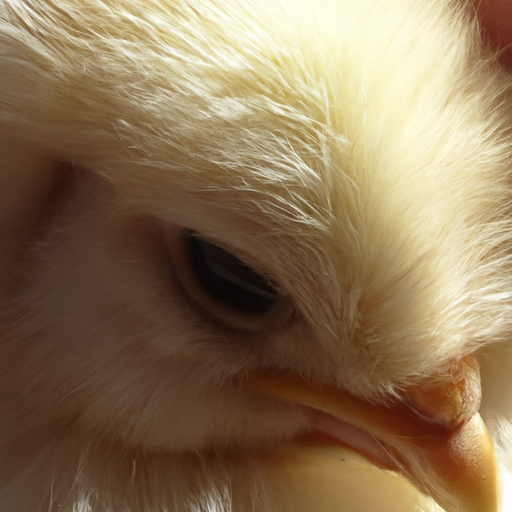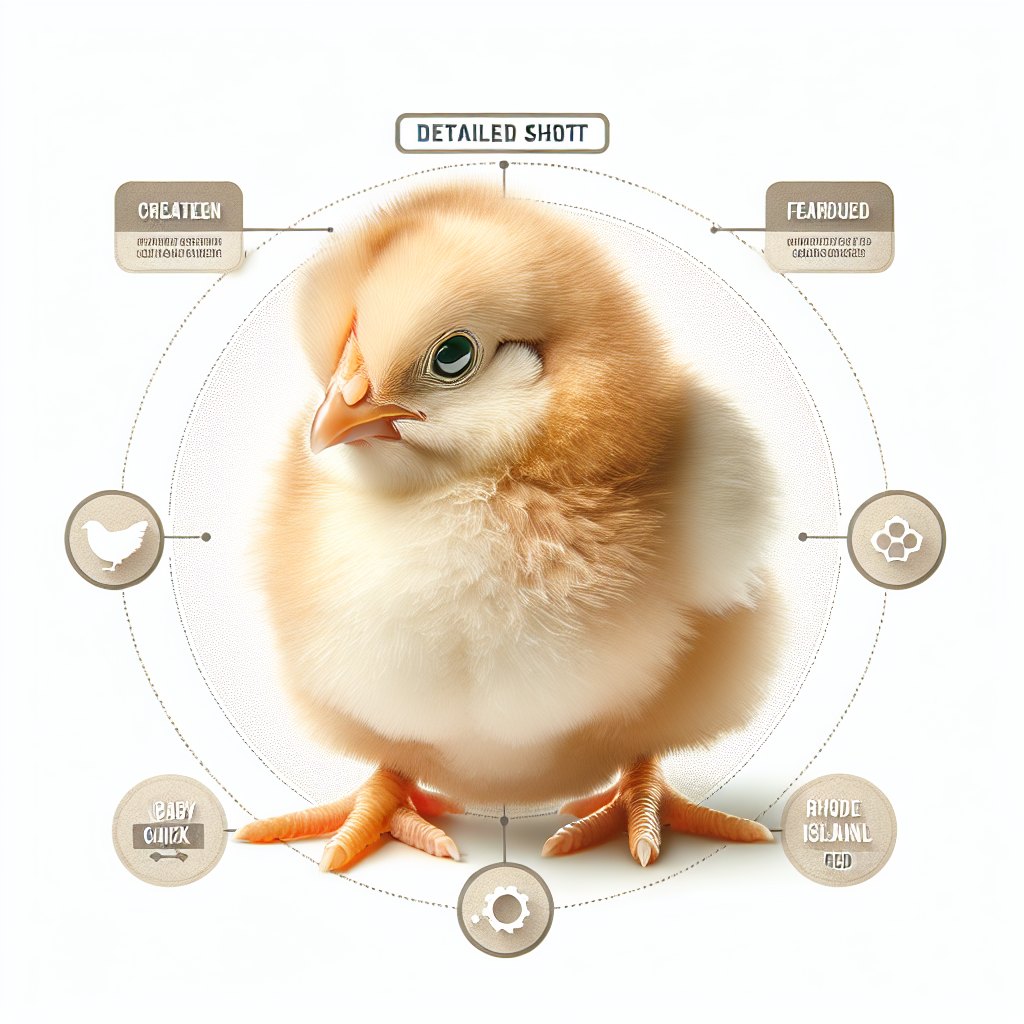If you’ve recently welcomed a flock of adorable baby chickens to your home, you may be wondering how to handle and socialize them without overwhelming them with stress. After all, these sweet little creatures require special care and attention during their early stages of life. In this article, we will explore some practical tips and techniques to ensure that your baby chicks feel comfortable, loved, and well-adjusted in their new environment. Get ready to embark on a delightful journey of creating a nurturing bond with your feathered friends!
Creating a Comfortable Environment
Creating a comfortable environment for baby chickens is essential for their overall well-being. Here are some key factors to consider:
Provide Adequate Space
Ensuring that chickens have sufficient space to move and roam is crucial. A cramped and overcrowded living area can cause stress and lead to behavioral issues. Consider the number of chicks you have and provide a suitable-sized enclosure or coop that allows each chicken to have enough room to spread their wings and move around comfortably.
Maintain Proper Temperature
Baby chickens are sensitive to temperature changes, so it’s crucial to provide a warm and cozy environment for them. Use a heat lamp or brooder to maintain a safe and consistent temperature. The ideal temperature for baby chicks is around 95°F (35°C) for the first week, gradually decreasing by 5°F (2°C) each week until they can regulate their own body temperature.
Ensure Sufficient Ventilation
Good ventilation is essential to maintain a healthy environment for baby chickens. Proper airflow helps remove excess moisture and odor while preventing the buildup of harmful gases. Be cautious not to expose them to drafty conditions, as this can also cause stress.
Use Appropriate Bedding
Choosing the right bedding for your baby chickens is important for their comfort and cleanliness. Opt for materials such as straw, wood shavings, or paper towels. Avoid using cedar shavings, as they can emit potentially harmful fumes. Regularly clean and replace the bedding to maintain a hygienic environment.
Offer a Balanced Diet
Providing a balanced and nutritious diet is vital for the health and development of baby chickens. Feed them with a specialized chick starter feed that contains the necessary proteins and nutrients they need. Additionally, consider offering treats such as small pieces of fruits or vegetables, but make sure to introduce them gradually and in moderation.
Understanding Chicken Behavior
To effectively handle and socialize baby chickens, it’s essential to understand their behavior and communicate with them appropriately. Here are some key points:
Learn Chicken Body Language
Observing and learning chicken body language can help you understand their needs and emotions. Pay attention to their posture, movements, and vocalizations. For example, a relaxed chicken will have feathers that lie flat, while a stressed chicken may appear tense and exhibit aggressive behavior.
Observe their Natural Interactions
Chickens are social animals that have their own distinct pecking order. By observing their natural interactions, you can better understand their social hierarchy and how they communicate with one another. This knowledge can help you interact with them in a way that respects their natural instincts and behaviors.
Recognize Signs of Distress
It’s important to be able to recognize signs of distress in baby chickens to ensure their well-being. Some common signs of distress include excessive feather picking, huddling together for warmth, lethargy, loss of appetite, or respiratory issues. If you notice any of these signs, it’s best to consult a veterinarian to ensure proper care and treatment.
Introducing Yourself Slowly
When it comes to handling baby chickens, it’s crucial to introduce yourself gradually to prevent them from feeling overwhelmed or stressed. Here’s how to make a positive first impression:
Approach Calmly and Confidently
Approaching baby chickens calmly and confidently can help them feel at ease around you. Avoid sudden movements or loud noises that can startle them. Slowly approach the chickens, allowing them to see you coming.
Offer Treats for Positive Association
Using treats to create positive associations can help baby chickens feel more comfortable around you. Gently offer them small, tasty treats while speaking to them in a soothing tone. This positive reinforcement will reinforce the idea that you are a safe and friendly presence.
Use Gentle Touch and Avoid Sudden Movements
When handling baby chickens, it’s important to use a gentle touch and avoid sudden movements that can startle or scare them. Gradually introduce them to being touched, starting with gentle strokes on their back or wings. Over time, they will become more accustomed to human touch.
Gradually Increase Handling Time
As baby chickens become more comfortable with handling, gradually increase the duration of your interactions. Start with short sessions and slowly extend the time you spend holding or interacting with them. This gradual approach will help them build trust and confidence in your presence.
Establishing Trust Through Socialization
Socializing baby chickens is crucial for their development and ability to interact with humans. Here are some tips for establishing trust through socialization:
Spend Time Near the Chicks
Simply spending time near the baby chickens can help them become familiar with your presence and voice. Sit near them and engage in quiet activities such as reading or talking. This quiet presence will help them associate you with feelings of safety and security.
Talk and Sing to Them
Talking or singing to baby chickens can have a soothing effect and help them become familiar with human voices. They may even recognize your voice and become more responsive to you. Use a calm and friendly tone while engaging with them.
Encourage Pecking and Exploring
Allowing baby chickens to peck and explore objects within their environment can help them build confidence and trust. Offer safe and non-threatening objects such as small pebbles or toys for them to investigate. This natural behavior will help them become more comfortable around new stimuli.
Offer Non-threatening Toys
Providing baby chickens with non-threatening toys can help stimulate their natural curiosity and provide enrichment. Simple and safe toys such as small balls or hanging treats can keep them engaged and encourage playful behavior, fostering a positive relationship with their environment.
Handling and Restraining Techniques
Knowing how to properly handle and restrain baby chickens is essential for their safety and your convenience. Here are some techniques to keep in mind:
Hold with Secure and Gentle Grip
When picking up a baby chicken, it’s important to use a secure and gentle grip. Place one hand under its breast, with your thumb and fingers securely holding the sides to support its body. Use your other hand to gently hold its feet, preventing any flapping or struggling.
Support Under the Wings and Keep Secure
Supporting the baby chicken under its wings provides additional comfort and stability. Securely hold the bird against your body to prevent it from slipping or feeling insecure. Keep a firm grip, but also ensure you don’t apply too much pressure.
Practice Regular Handling Sessions
Consistently handling baby chickens from an early age is crucial for socialization and habituation. Implement regular handling sessions, gradually increasing the frequency as they grow. This regular interaction will help them become more comfortable with human handling.
Avoid Rough or Excessive Handling
While it’s important to handle baby chickens regularly, it’s equally important to avoid rough or excessive handling. Be gentle and respectful of their delicate nature. Excessive handling can cause stress and potentially lead to injuries or behavioral issues.
Positive Reinforcement and Rewards
Using positive reinforcement and rewards can be an effective way to train and socialize baby chickens. Here are some methods to consider:
Use Treats and Food Rewards
Treats and food rewards are a powerful tool for training and socialization. Use small, tasty treats to reward desired behaviors or responses. This positive reinforcement encourages baby chickens to repeat the desired behaviors and fosters a positive association with human interaction.
Train with Simple Commands
Training baby chickens to respond to simple commands can be an enjoyable and beneficial practice. Start with basic commands such as “come” or “step up” and reward them with treats when they correctly respond. It’s essential to be consistent and patient during the training process.
Apply Clicker Training Techniques
Clicker training is a popular and effective method for training chickens. It involves using a clicker to mark desired behaviors, followed by a reward. Associate the sound of the clicker with positive outcomes, and the chickens will quickly learn to associate the sound with good behavior.
Gradual Exposure to New Experiences
Exposing baby chickens to new experiences helps them become well-adjusted and adaptable birds. Here’s how to gradually introduce them to different stimuli:
Introduce New Surroundings Slowly
When giving baby chickens access to new surroundings, do so in a gradual and controlled manner. Start by providing supervised playtime in a small, safe area before gradually expanding their access to larger spaces. This gradual exposure will prevent overwhelming them with new stimuli.
Expose to Different Sounds and Textures
Expose baby chickens to a variety of sounds and textures to help them become accustomed to different stimuli. Play gentle music or introduce low-volume household sounds. Provide different materials for them to peck at or interact with, such as cardboard or fabric.
Familiarize with Different People and Animals
To ensure that baby chickens are comfortable around different people and animals, introduce them to a variety of individuals and friendly pets. Allow supervised interactions with calm and well-behaved dogs or cats, ensuring the safety of both parties. This exposure will help them develop social skills and adaptability.
Minimizing Stressful Situations
Minimizing stressful situations is crucial for the well-being of baby chickens. Here are some ways to avoid unnecessary stress:
Avoid Loud Noises and Sudden Changes
Baby chickens are easily startled by loud noises and sudden changes, which can cause stress. Avoid exposing them to loud music, machinery, or sudden movements. Keep their environment calm and predictable to help reduce their stress levels.
Keep Handling Sessions Short and Positive
While it’s important to handle and socialize baby chickens, it’s equally important to keep the sessions short and positive. Baby chickens have limited attention spans and can become overwhelmed with prolonged handling. Aim for frequent and positive interactions rather than extended periods of handling.
Limit Exposure to Large Crowds
Limiting exposure to large crowds or unfamiliar faces can help prevent fear and stress in baby chickens. Loud and crowded environments can be overwhelming to these young birds. When introducing them to new people, do so in a calm and controlled setting to ensure a positive experience.
Prevent Overstimulation during Socialization
During socialization sessions, be mindful of overstimulation. Baby chickens can become overwhelmed by too much interaction or exposure to new experiences at once. If you notice signs of stress or overstimulation, temporarily remove them from the situation and gradually reintroduce them in a more controlled manner.
Ensuring Health and Hygiene
Maintaining the health and hygiene of baby chickens is essential for their overall well-being. Here are some important practices to follow:
Regularly Clean Living Spaces
Keeping the living spaces of baby chickens clean is crucial to prevent the buildup of bacteria and parasites. Regularly clean and replace soiled bedding to maintain a clean environment. Disinfect any equipment or surfaces used in their care to prevent the spread of diseases.
Monitor for Signs of Illness
Regularly monitoring baby chickens for signs of illness is necessary to ensure early detection and prompt treatment. Keep an eye out for symptoms such as abnormal behavior, loss of appetite, lethargy, diarrhea, or abnormal breathing. Take immediate action if you notice any signs of illness, and consult a veterinarian when necessary.
Consult a Veterinarian when Necessary
If you have any concerns about the health or well-being of your baby chickens, it’s important to consult a veterinarian with experience in poultry care. They can provide guidance, diagnose any potential health issues, and recommend appropriate treatments or preventive measures.
Maintaining a Routine
Establishing a consistent routine helps baby chickens feel safe and secure. Here are some aspects to consider for maintaining a routine:
Establish a Consistent Schedule
Baby chickens thrive on consistency, so establish a regular schedule for feeding, cleaning, and handling. Stick to the same time each day, as this predictability helps them feel secure and reduces stress.
Provide Regular Socialization Opportunities
Make socialization a regular part of the baby chickens’ routine. Incorporate daily handling sessions or supervised playtime with other chickens or gentle animals. This regular exposure will help them develop social skills and confidence.
Practice Patience and Persistence
Building trust and socializing baby chickens takes time and patience. Be persistent in your efforts, even if progress seems slow. Maintain a calm and positive attitude, and over time, your consistent and patient approach will yield positive results.
By following these guidelines, you can create a comfortable and nurturing environment for baby chickens, understand their behavior, introduce yourself effectively, establish trust through socialization, handle them with care, and ensure their well-being. Remember to always approach baby chickens with kindness and respect, and continuously strive to build a positive and rewarding relationship with them.




